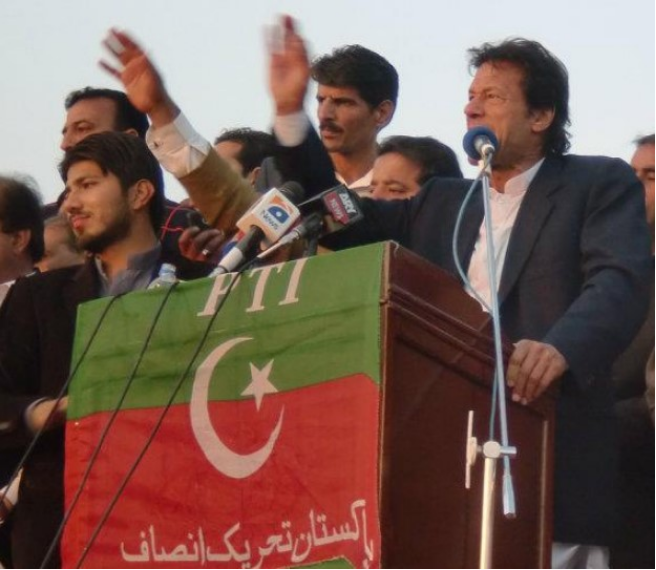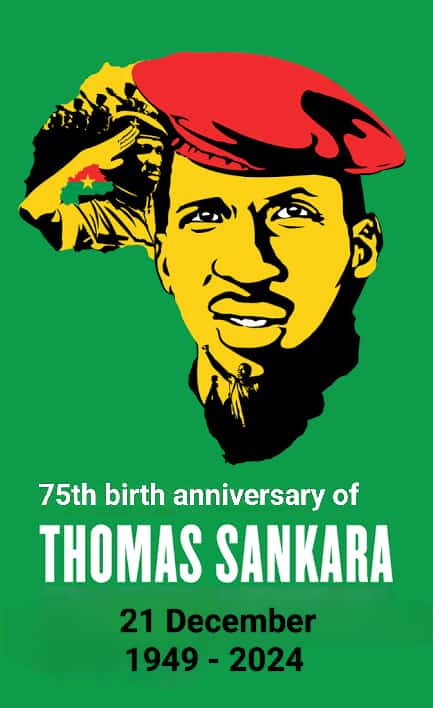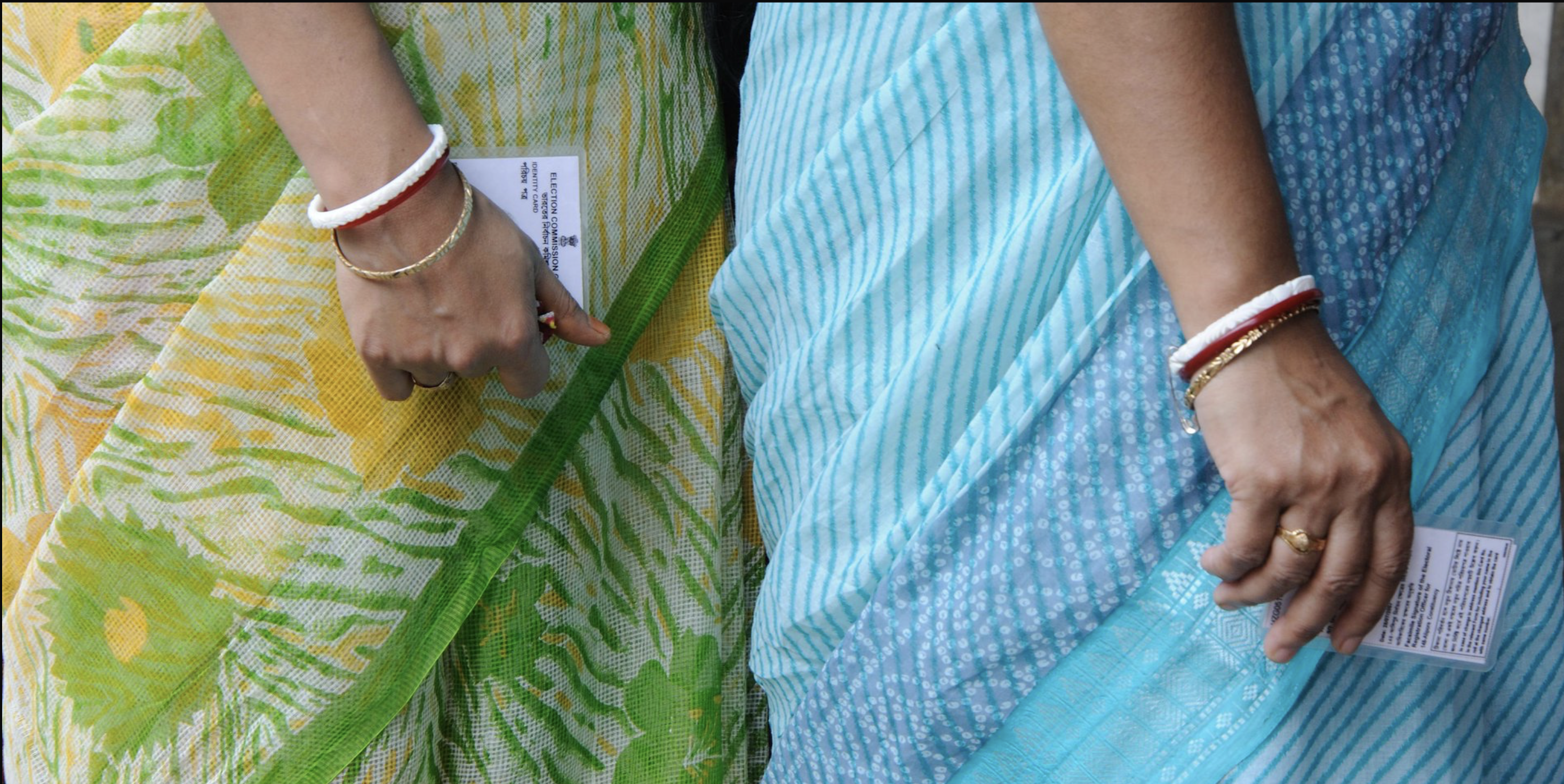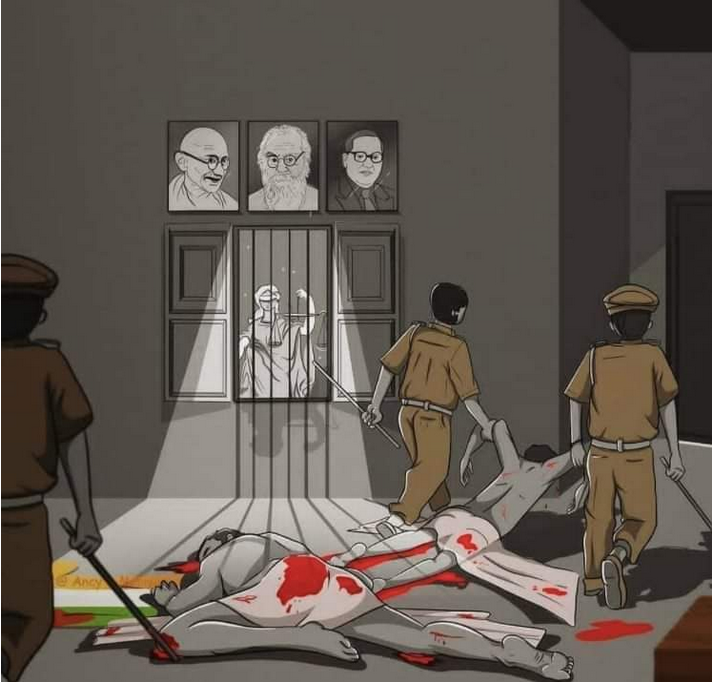The crisis of the capitalist system in Pakistan is reaching unprecedented levels, reflecting the fact that it is one of the weakest links in the chain of world capitalism. Alongside the political and economic crises, the crisis of the state is unravelling to a degree never seen before, leading the whole society into an abyss of misery and wretchedness.
Whilst the economy of the country totters on the brink of default, with foreign exchange reserves guaranteeing less than one month of imports, the infighting among the ruling class has intensified to the point of an attempted assassination of opposition leader and former Prime Minister Imran Khan.
Imran Khan’s government had been removed from power after a ‘no confidence’ vote in June this year, after which a new government led by an alliance of more than eleven parties came to power. Since then, Khan has used various tactics to return himself to power, either within the tenure of the current parliamentary session (which will end in August next year) or through early elections. In this power struggle, not only are both sides exposing each other’s corruption, fraud, links with the army generals, servility before the imperialist powers, and anti-people actions, but they are also using mainstream media and social media to pour every kind of filth on each other.
In this whole episode, the working masses of the country are mostly spectators, whilst both factions of the ruling class have only very limited support among the petty bourgeois and bourgeois elements across the country. Even this support on both sides is depleting quite quickly as the factional fight in the ruling class intensifies, and fewer and fewer people are coming out in support of one party or the other.
Dirty linen aired in public
In this infighting, all the dark secrets that were kept behind closed doors, and deals done under the table are now coming to the fore. The filthy dealings and orgies of various political leaders and top government officials are being discussed publicly.
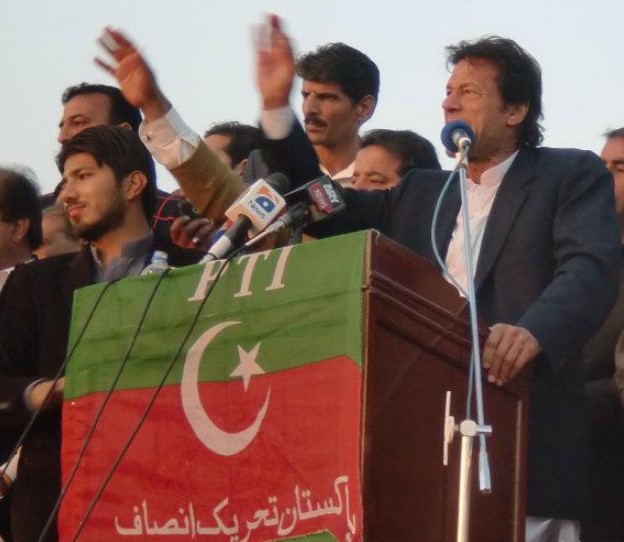
The real character of the state institutions, such as the judiciary, army and civil bureaucracy, along with mainstream media, has also been exposed. It is clear that these institutions represent the naked interests of the ruling class and that they use their positions in society not only to enrich themselves but also to protect the interests of the ruling class. No state institution or political party represents the interests of the working class and they are least of all concerned about the economic crisis, which is devastating the lives of millions of workers and their families – pushing them towards more misery and death.
Not a single policy decision in recent months – either by the PDM that rules nationally, nor Imran Khan’s PTI that rules in two provinces – has favoured the working class or the unemployed youth. Rather, they have attacked the masses with every possible means, and shifted the burden of the whole economic crisis onto their shoulders while announcing huge subsidies and support packages for the rich. State institutions like the judiciary and army are also using every possible means to enrich the rulers and they are using all their authority and power to crush the working class and strangle any attempt to resist this monstrous onslaught of capitalism.
In this situation – in which the working class has not as yet begun to mobilise and the ruling class is using every opportunity to steal the resources of the country, shifting their bank balance sheets and assets to safe havens abroad – the fight over the loot and plunder is bringing the whole edifice to a collapse.
Audio leaks and videos – fake or real – have emerged of personal and intimate moments of various important figures, recorded for the purpose of threatening or blackmailing them. Some leaders of Imran Khan’s PTI were also arrested on charges of sedition. They were allegedly subjected to inhumane custodial torture, including electrical shocks of their private parts. One senator from PTI alleged in a press conference that a video of intimate moments between himself and his wife were recorded by intelligence agencies during his stay in an official guest house, and were sent to his family in order to blackmail him. A similar video, allegedly of a leader of the ruling party PML(N), was also leaked some days ago. There have been claims that videos exist of Imran Khan indulging in various orgies, which could be leaked at any time. Meanwhile, dozens of police cases are being registered against leaders on both sides in order to threaten or control them.
At the bottom of this whole quagmire is the question of the appointment of the next army chief, which is due this month. In its 75-year history, the Pakistan Army has played a dominating role in politics. Indeed, the country has been under the direct rule of the army for half its existence. At other times, the army generals controlled things from behind closed doors. But in the last two decades, the role of army generals has grown out of all proportion. They are more powerful now than at any time in their history. One of the main reasons has been their involvement in the economic affairs of the country, which is incessantly growing by leaps and bounds. Today, the army controls more than one third of the economy directly and indirectly.
Policies of imperialism
US imperialism’s so called ‘War on Terror’ in Afghanistan also helped to enrich the generals these past 20 years. Billions of dollars were poured directly and indirectly into the country, bringing a boom in the real estate and construction sectors, from which army generals emerged as the biggest winners.
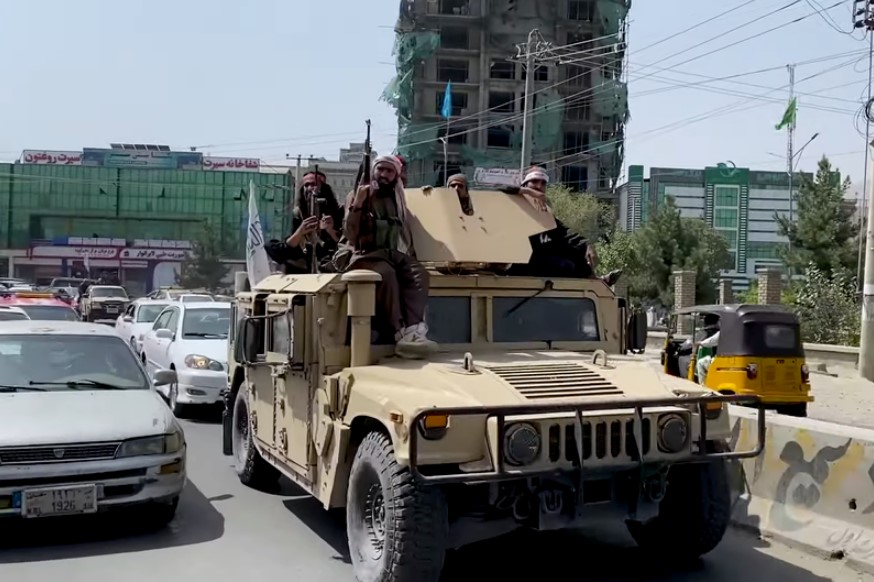
According to some estimates, US imperialism spent around two to three trillion dollars in Afghanistan in the last two decades. A huge portion of this certainly went to the arms manufacturers and contractors of the US and allied forces themselves. But some of it also benefited the ruling class of Pakistan. In this whole episode of blood and death, the masses of both Afghanistan and Pakistan suffered terribly from poverty, hunger and disease on the one side, and terrorism, suicide attacks, bomb blasts, and army operations and killings on the other. All the while, the imperialist powers and ruling class of these countries bathed in money and gold.
This whole imperialist war ended in a humiliating defeat for US imperialism and the return of the black reaction of Taliban rule, the latter now enjoying friendly relations with the imperialists. But the imperialists’ defeat also upset the status quo of the last few decades: the whole war economy, developed over years, came to a grinding halt. This war, and the crisis of world capitalism, has not only weakened US imperialism and opened an era of its decline, but it has also pushed the countries dependent on its imperialist policies towards a catastrophe.
The current situation in Pakistan must be understood in these terms – the crisis of the state and political parties reflect the underlying crisis of the capitalist system, and of the foundations on which this state and whole regional alliances were built at a time when US imperialism was much more powerful.
It is commonly understood in Pakistan that US imperialism decides the appointment of the army chief, who in turn controls the country’s politics and state structures, either overtly or covertly. In the last few years, this whole scheme has become clearer to the wider public. When Imran Khan was brought to power in 2018, it was common knowledge that there had been a huge army operation to rig the elections and boost his electoral performance by coercing so called ‘electable’ or powerful individuals at the local level in various parties to change their loyalty and join Khan.
Methods of coercion included initiating corruption cases against individuals or using personal videos and telephone calls recorded by the intelligence agencies to expose extra-marital affairs, whilst others were saved for blackmail purposes.
After bringing Imran Khan to power, all resources from the media to parliament were used to prop up his government and strangle his opposition through corruption cases, etc. The army generals were clearly trying to limit the authority of the leaders of long-established and much-hated political parties in order to assert a firmer grip on power. Meanwhile, the real estate ventures and other businesses of the army generals flourished. Some made headlines in the media. It was reported, for instance, that the senior general Asim Bajwa and his family owned 99 companies, spanning mining, to real estate and pizzerias.
Imran Khan himself admitted in one interview that he had asked the intelligence agencies to force his MPs and coalition partners to vote for his policies in parliament during his government. He also confessed to being a mere puppet, whilst the real control of the government lay with the generals. Now that has come to an end, the cited reason being a dispute over the appointment of chief of intelligence agency ISI, and the forthcoming army chief appointment. Imran Khan wanted people he considered to be supporters of his faction in the ruling class appointed to these key positions. Other factions had their own favourites however. This led to a power struggle and the ousting of Imran Khan’s government, which Khan himself alleges was achieved with the backing of US imperialism.
After being ousted, Imran Khan started agitating for his return to power with the aim of returning by November to secure this choice for the all-important appointment, or else to force early elections so that the process might be delayed, or at least taken out of the control of the incumbent government. The motive behind his current so-called ‘Long March’ is the same.
As the date of this key appointment came closer, he began speaking more bluntly about the generals that he disliked, exposing their brutality and attacks. In the thick of this infighting, he also made several accusations regarding the ISI, for plotting his ousting from the government, and threatening his supporters and media personalities in order to swing their loyalties.
The situation deteriorated when a top anchor of a leading media group that openly supports Khan, Arshad Sharif, was first forced to flee the country, and was then assassinated in Kenya last month. In these circumstances, the general in charge of the ISI, Nadeem Anjum, had to appear publicly for the first time in history and address a press conference in Islamabad to counter Imran Khan’s allegations.
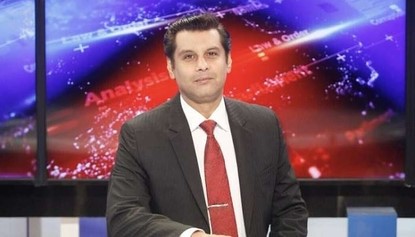
Despite the threats and tensions on the political scene, Imran Khan continued with the plan for his so-called ‘Long March’ to Islamabad from Lahore in an effort to push for early elections, although his real aim was to bargain for the appointment of the army chief of his choice. It has been suggested in various media outlets that the current army chief may want a second extension in his role, in which he may continue for another year to diffuse the present situation. Imran Khan gave his public support for this idea proposal, and even went as far as saying that imposing martial law on the country would be preferable to the status quo.
Khan has clearly stated that he does not wish the army to take a neutral stance on the issue, but to support him in his faction fight. His rhetoric against the army and the incumbent government haven’t gathered any public support, despite the huge attacks that the government had conducted against the working class in recent months. Officially, inflation is hovering around 27 percent, while unofficially it is more than 40 percent.
The meagre support for Imran Khan at his rallies reflects the fact that the working class does not support any of the established political parties. It is fed up with the whole ruling class. In this situation, the ruling parties put out the rumour that an accident or attack might be used as an excuse by Khan to end his campaign of protests. Meanwhile, Imran Khan himself was claiming that he could end up being assassinated by his political rivals on account of his political campaign.
After the assassination attempt against him near Wazirabad, these allegations from both sides reached a new pitch of bitterness and even of insanity. Imran Khan alleged that the plans for the attack were hatched by a major general working in ISI, and included Prime Minister Shahbaz Sharif and Home Minister Rana Sanaullah. He emphasised again and again that major general Faisal Naseer ought to be named in a police case or else no such case should be registered at all.
Faisal Naseer is currently serving as the DG (C) in ISI, and is in charge of political affairs in the country. PTI supporters on social media named many other army officers inside ISI as involved in planning the attempt, although the army officially issued a strong rebuke against these claims and said that such names cannot be included in the police case. Imran Khan also claimed that he has huge support among army officers, and that they had regularly given him information as to what was happening and the plans being hatched.
In this situation, the role of the army, political parties and the courts is being discussed continuously in public, and the threat of more assassination attempts against various media personalities and leaders are being hurled.
At the present time, it seems that the name of the next army chief has been finalised by Nawaz Sharif and his party in a meeting in London. The situation may calm down when the decision is announced, although the bitterness and the levels of infighting reached don’t appear to be fading away any time soon, and the crisis is sure to intensify in the coming period.
Change in the command of the army may seem to affect the balance of forces in this bitter game of political rivalry, but any break in the turbulence will be short lived, and the situation will worsen at a far higher level in the coming period.
The economic crisis is worsening and the possibility of default rises every day. There is no plan to revive the economy, nor is this even possible on the basis of the capitalist system. The only option is to beg for debt relief, rescheduling debt with more loans from the various imperialist powers, which are now busy trying to solve domestic crises and are little interested in shoring up the bankrupt economies of poor countries.
Even if the country defaults and the economy comes to a grinding halt, the whole elite of this country lose little, as they have secured their assets and those of their families in foreign developed countries. The masses alone will be on the receiving end, having faced shortages of all kinds already, from basic food items to important medicines; from electricity to gas for cooking.
But the working class can also see that this system and the state institutions have nothing to offer them and they will have to take matters in their own hands in order to survive. A mass movement can erupt across the country in the coming period, which will challenge the rule of these bloodthirsty monsters.
The working class, once it is out on streets, can take hold of the whole situation and lead it towards a revolutionary transformation. At this juncture, the infighting of the ruling class will pause and they will unite to crush the unity and power of the working class. Already, nationalist, religious and all other prejudices are being used by the ruling class to divide the workers. But in a mass uprising, only the class question will come to the fore. The decisive action of the working class will end all kinds of national and class oppression and exploitation. In such a situation, a revolutionary party on the lines of the Bolshevik Party under Lenin and Trotsky will be vital to lead the working class and can end this monstrous capitalist system forever, bringing prosperity and progress to the millions who make up the suffering masses.

